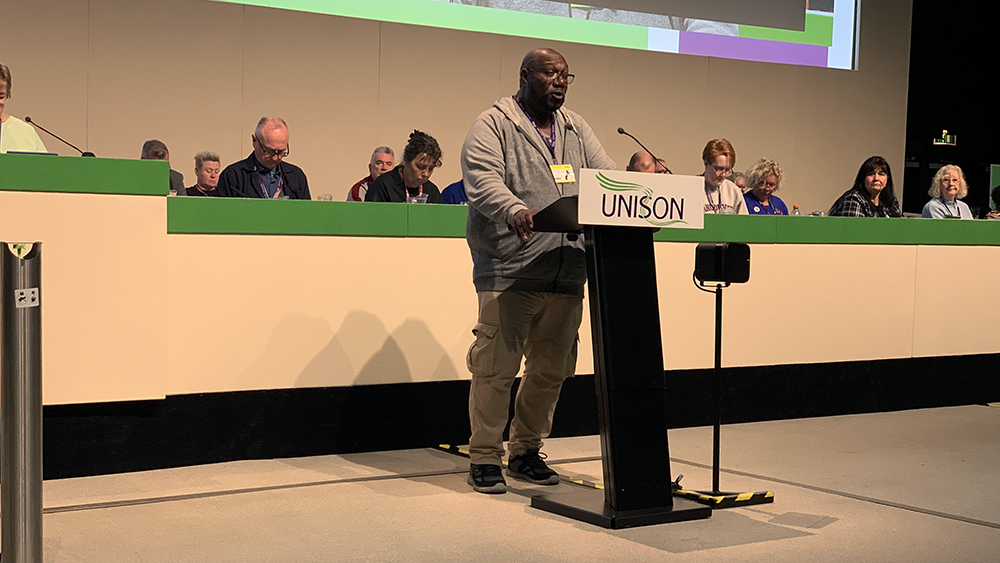At the UNISON health conference, discussions highlighted significant concerns about the insourcing practices within the NHS, where external private companies are often brought in under the guise of insourcing.
Tam Hiddleston from the service group executive cautioned against the misleading perception of insourcing, stating, “we invariably think of insourcing as a positive,” but warned that it often involves “private operators being brought into the NHS.” This practice can lead to broader implications for the Agenda for Change pay and conditions which needs careful monitoring by UNISON.
Chris from London voiced a common concern among delegates: “What’s the point of insourcing people and you just change their uniforms?” This comment underscored the sentiment that merely changing the provider does not necessarily lead to improved services or working conditions.
Glen Carrington discussed the challenges facing staff in mega trusts, particularly with NHS England’s push for trust mergers as a cost-saving measure. He pointed out the lack of assessment on the impact of such changes on staff, saying, “after 14 long years of Tory cuts, has anyone ever looked to see what the impact is on staff?” He described the frequent disruption to employees’ routines, noting, “The chances of starting a shift in Cromer and ending up in London happens all too often. Don’t let anyone tell you big is always better.”
The conference also addressed the negative outcomes of outsourcing, which not only destabilizes job security but also contributes to a fragmented workforce. One speaker highlighted this as a “national scandal that the Tory government continues to be complicit in,” indicating the ongoing governmental support of such practices.
In a positive light, the conference acknowledged the steady recruitment of healthcare students into UNISON. A motion from the national young members’ forum pointed to a survey revealing the financial struggles faced by healthcare students amid the cost of living crisis, with 35% unsure if they could complete their studies due to financial pressures.
Calls to action included engaging with regional health committees and the strategic organising unit to bolster the recruitment and organisation of healthcare students, campaigning for improved financial support for these students, and working with the national women’s committee to address the additional financial challenges facing healthcare students with childcare responsibilities.
















